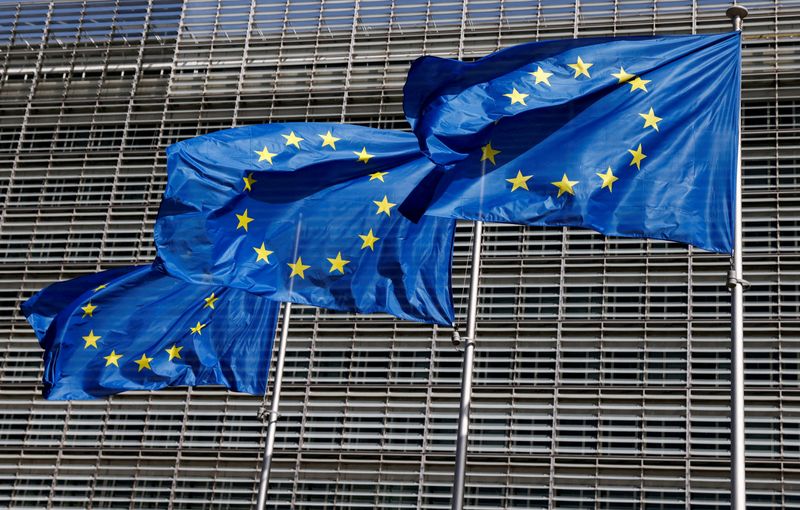By Gabriela Baczynska
BRUSSELS (Reuters) - A large majority of European Union lawmakers voted on Thursday to condemn damage to democracy in Hungary under veteran Prime Minister Viktor Orban, stepping up pressure on the bloc to cut funding for the ex-communist country.
Citing corruption risks, the European Commission is expected to recommend later this week suspending billions earmarked for Budapest from the bloc's 1.1 trillion euro ($1.1 trillion) shared budget for 2021-27.
That would be the first such EU move under its new financial sanction dubbed "cash for democracy" and agreed two years ago precisely in response to Orban, as well as his allies in Poland, rowing back on liberal democratic tenets inside the bloc.
On Thursday, the European Parliament voted 433 in favour and 123 against to adopt a report declaring the "existence of a clear risk of a serious breach by Hungary of the values on which the (European) Union is founded".
"The situation has deteriorated such that Hungary has become an 'electoral autocracy'" rather than a democracy, the chamber said in a statement.
In response, Orban's ruling Fidesz party said the EU parliament was more interested in bashing Hungary than tackling an economic crisis caused by surging energy costs aggravated by by Russia's war in Ukraine and Western sanctions against Moscow.
"It is astounding that even in the current crisis the leftist majority of the European Parliament keeps busy only with attacking Hungary," Fidesz said in a statement.
"The left in Brussels wants to punish Hungary over and over again and withhold the funds due for our country."
Orban has been locked for years in acrimonious feuds with the EU, which Hungary joined in 2004, over the rights of migrants, gays and women, as well as the independence of the judiciary, media and academia.
The self-styled illiberal crusader denies, however, that Hungary is any more corrupt than other nations in the 27-nation bloc.
The European Commission has already blocked some 6 billion euros due for Budapest from the bloc's separate COVID economic stimulus package, citing insufficient anti-graft safeguards in Hungary's public procurement.
Funds worth as much as a tenth of Hungary's GDP could be at stake should other EU members approve the expected recommendation by the Commission, a prospect that has weighed on the Hungarian forint, central Europe's worst-performing currency.
Budapest has come under pressure in recent weeks to strike a deal with Brussels and unlock funding for Hungary's ailing economy, and Orban's government has promised to create a new anti-graft agency.

Member countries have three months to decide on the Commission's recommendation and they could limit the punishment if they found Budapest's actions in the meantime convincing.
($1 = 1.0021 euros)